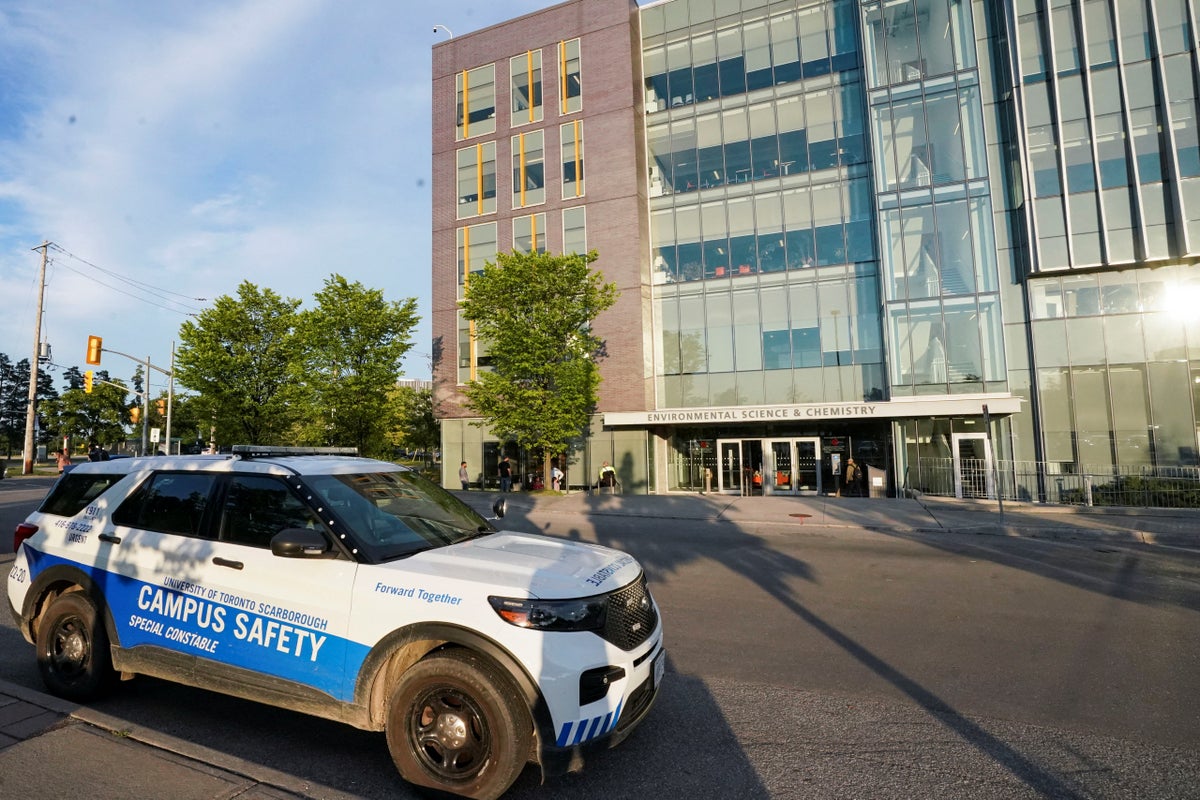
Support truly
independent journalism
Serial killer Jeremy Skibicki has been sentenced to four concurrent life sentences with no chance of parole for 25 years in the murders of four Indigenous women in Canada.
Skibicki was found guilty of first-degree murder last month in the killings of Morgan Harris, 39, Marcedes Myran, 26, Rebecca Contois, 24, and an unidentified woman who has been given the name Mashkode Bizhiki’ikwe, or Buffalo Woman, by community leaders.
The first three victims were all Indigenous women.
Initially arrested in May 2022, the 37-year-old from Winnipeg showed no emotion at his sentencing. When the Court of King’s Bench Justice Glenn Joyal asked him if he had anything to say, Skibicki replied, “No.”
He sat staring straight at his sentencing hearing, as the relatives of the victims told the court how the killings affected them.
"This has been horrific to go through," said Elle Harris, the youngest daughter of Harris. "Do you know how many times I had to listen to how my mother was murdered?" she told CBC News.
"’Agony’ is not painful enough. ‘Shattered’ doesn’t explain how I feel. ‘Infuriated’ doesn’t even come close to the amount of rage I find myself trapped in," said Allana Contois, the oldest sister of Contois. "’Justice’ is just a word for comfort. It doesn’t bring her back."
Skibicki confessed to the murders during his police interrogation in 2022, saying that they were racially motivated. However, his lawyers had defended him during the trial saying that he should not be held criminally responsible for the murders due to a mental disorder. Judge Joyal rejected the plea, saying the confession shows the murders were deliberate and planned.
He targeted the Indigenous women he met at homeless shelters between March and May 2022, the court was told. According to court documents, Skibicki killed the women between March and May, whose mortal remains were found in a landfill. Police are still hunting the area, as remains of two more victims are believed to be there.
Justice Joyal also noted the “inadequacy” of the life sentence with no parole for 25 years, as he handed down the sentence.
"Make no mistake, Mr Skibicki: because of the current state of the law, the only available sentence that I can impose today will regrettably not adequately reflect the gravity of these offences and your moral culpability," the judge said.
"My hope is that any eventual parole panel will take very, very careful note of the evidence in this case, my reasons for decision, the voices you heard today and now my comments in closing this sentence."
The victims, said the judge, "were preyed upon and targeted by a white supremacist who was acting upon his homicidal necrophilia".
Explaining the impact of the killings on the members of the indigenous community, Grand Chief Cathy Merrick of the Assembly of Manitoba Chiefs said:“The heinous crimes committed by Mr Skibicki have left a deep scar on First Nations people and the reverberations of his actions will be felt for generations.”
“Despite the overwhelming challenges, the community remains resilient.”







